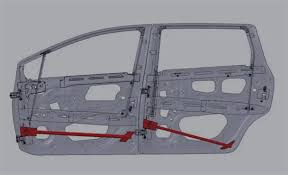
The Importance of Automotive Parts Supply in the Global Market
The automotive industry is a cornerstone of the global economy, driving innovation, employment, and technological advancements. At the heart of this industry is the supply of automotive parts, which plays a critical role in ensuring that vehicles are assembled efficiently and operate safely. The supply chain for automotive parts is complex and requires meticulous coordination among manufacturers, suppliers, and distributors.
The automotive parts supply chain can be divided into several key components raw material suppliers, parts manufacturers, and distribution networks. Raw materials such as metals, plastics, and rubber are the foundation of automotive parts production. Suppliers of these materials must ensure high quality and reliability, as any flaw can compromise vehicle safety and performance.
Once the raw materials are procured, parts manufacturers take on the responsibility of producing components such as engines, transmissions, brakes, and electronic systems. This stage of production often involves advanced manufacturing techniques, including automated assembly lines and precision engineering. With the rise of electric vehicles (EVs), parts manufacturers are also increasingly focused on producing batteries and electric drivetrains, which require specialized knowledge and technology.

The distribution of automotive parts is another crucial aspect of the supply chain. Efficient logistics ensure that parts are delivered to assembly plants in a timely manner. Just-in-time (JIT) inventory systems have become popular in the automotive sector, minimizing storage costs while maximizing efficiency. However, this approach also poses risks; disruptions in transportation, such as those caused by natural disasters or pandemics, can halt production lines, leading to significant financial losses.
Globalization has profoundly impacted the automotive parts supply chain. Many manufacturers source parts from multiple countries to leverage cost advantages and gain access to specialized expertise. Countries like China, Japan, and Germany have become central hubs for automotive parts manufacturing. However, this global interconnectedness can also create vulnerabilities. Events like trade disputes or geopolitical tensions can disrupt supply chains, prompting companies to rethink their sourcing strategies.
Sustainability is another pressing issue in the automotive parts supply chain. As the world shifts towards greener technologies, manufacturers are increasingly called upon to consider the environmental impact of their operations. This includes reducing waste, utilizing recyclable materials, and developing more energy-efficient manufacturing processes. Consumers are also pushing for more sustainable practices, influencing how parts suppliers operate.
In conclusion, the automotive parts supply chain is vital to the functioning of the automotive industry. It involves a delicate balance of sourcing, manufacturing, and distribution, all while adapting to global economic trends and sustainability concerns. As the industry continues to evolve, particularly with the rise of electric vehicles, the necessity for an agile and responsive parts supply chain will only grow more important. Stakeholders must remain vigilant and innovative, ensuring a robust supply chain that not only meets current demands but also anticipates future challenges. The success of the automotive industry hinges on the strength and resilience of its parts supply chain.